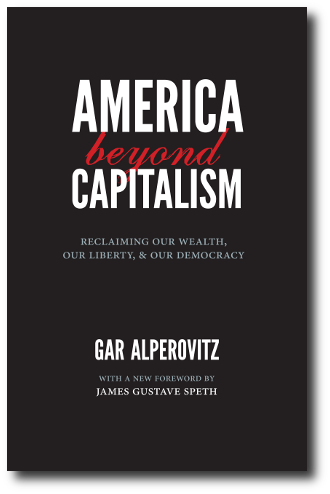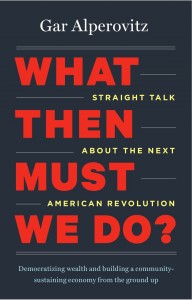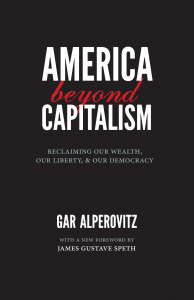Originally published in the New York Times on July 23, 2015.
THE great 20th-century conservative economist Joseph Schumpeter thought the left had overlooked a major selling point in pressing the case for public — i.e., government — control over productive capital. “One of the most significant titles to superiority,” he suggested, was that public ownership produced profits, which means not having to depend on taxes to raise money.
The bulk of the left never took up Schumpeter’s argument. But in an oddly fitting twist, these days the mantra of public control in exchange for lower taxes has been embraced by a surprising quarter of the American political leadership: conservatives.
The most well-known case is Alaska. The Alaska Permanent Fund, established by a Republican governor in 1976, combines not one, but two socialist principles: public ownership and the provision of a basic income for all residents. The fund collects and invests proceeds from the extraction of oil and minerals in the state. Dividends are paid out annually to all state residents.
Texas is another example of conservative socialism in practice. Almost 150 years ago the Texas Permanent School Fund took control of roughly half of all the land and associated mineral rights still in the public domain. In 1953, coastal “submerged lands” were added after being relinquished by the federal government. Each year distributions from the fund go to support education; in 2014 alone it gave $838.7 million to state schools. Another fund, the $17.5 billion Permanent University Fund, owns more than two million acres of land, the proceeds of which help underwrite the state’s public university system.
Similar socialized funds — sometimes called sovereign wealth funds — are common in other conservative states. The Permanent Wyoming Mineral Trust Fund, with a market value of more than $7 billion accumulated from mineral extraction, is almost a direct expression of Schumpeter’s doctrine: Socialized ownership has helped to eliminate income taxes in the state.
Such “socialism, American style,” can produce odd reversals of conservative-liberal political alignments. One of the largest “socialist” enterprises in the nation is the Tennessee Valley Authority, a publicly owned company with $11 billion in sales revenue, nine million customers and 11,260 employees that produces electricity and helps manage the Tennessee River system. In 2013 President Obama proposed privatizing the T.V.A., but local Republican politicians, concerned with the prospect of higher prices for consumers and less money for their states, successfully opposed the idea.
Although state forms of public ownership have not been a major goal of the modern left, activists have begun to pick up on the idea that owning wealth in ways that benefit local communities is important. In Boulder, Colo., climate-change activists have helped win two major victories at the polls in a fight to municipalize the current utility owned by Xcel Energy. Publicly owned utilities also commonly return a portion of their profits, socialist style, to the city or county to help supplement local budgets, easing the pressure on taxpayers.
There are, in fact, already more than 2,000 publicly owned electric utilities that, along with cooperatives, supply more than 25 percent of the country’s electricity, now operating throughout the United States.
In one of the most conservative states, Nebraska, every single resident and business receives electricity from publicly owned utilities, cooperatives or public power districts. Partly as a result, Nebraskans pay one of the lowest rates for electricity in the nation.
The list goes on. More than 450 communities have also built partial or full public Internet systems, some after significant political battles. Roughly one-fifth of all hospitals are also currently publicly owned. Many cities own hotels, including Dallas — where the project was championed by the former Republican mayor Tom Leppert. Some 30 states directly invest public funds in promising start-up companies.
Moreover, contrary to conventional opinion, studies of the comparative efficiency of modern public enterprise show rough equivalency to private firms in many cases. (They aren’t perfect, of course: Many public agencies, boards and corporations that control enterprises are not fully accountable or transparent in their operations.)
With skepticism about capitalism growing among minorities and young voters, will we see more such endeavors in the future? Pendulums have a way of swinging, sometimes very sharply, when big economic tsunamis hit. It is possible that in the next big crisis, both sides might see the wisdom and practical benefits of public ownership, and embrace Joseph Schumpeter’s point even more boldly than they do today.
 AMERICA BEYOND CAPITALISM
AMERICA BEYOND CAPITALISM



 Agenda
Agenda  Posterboard
Posterboard 